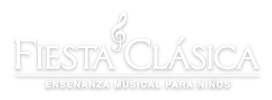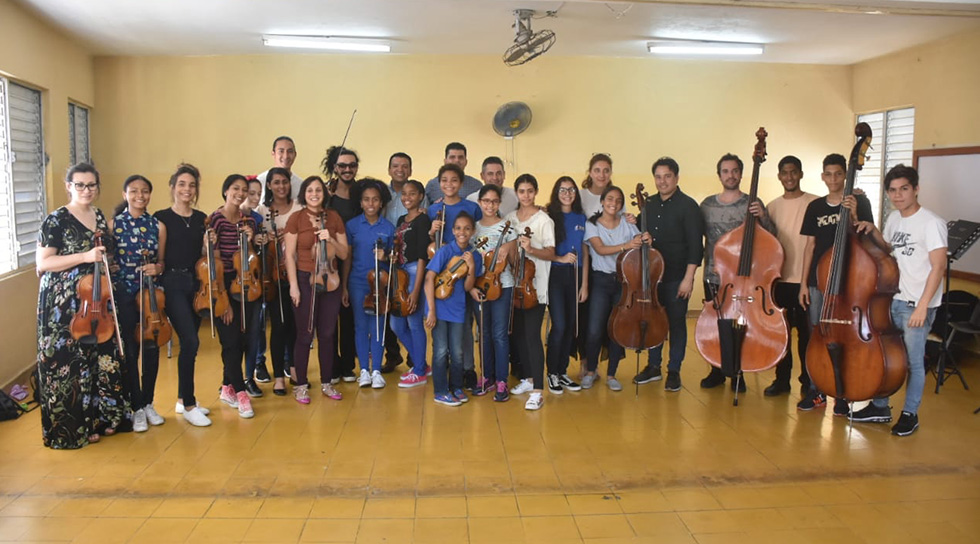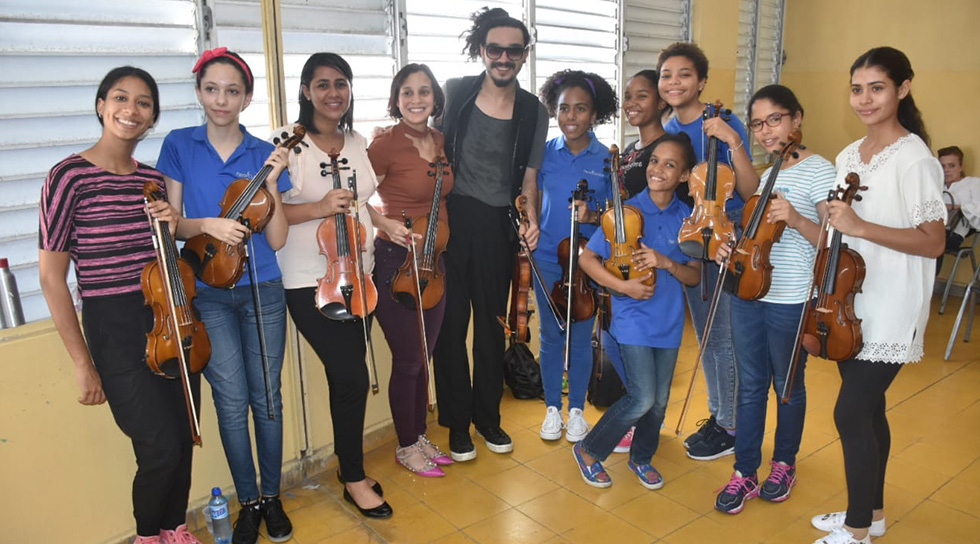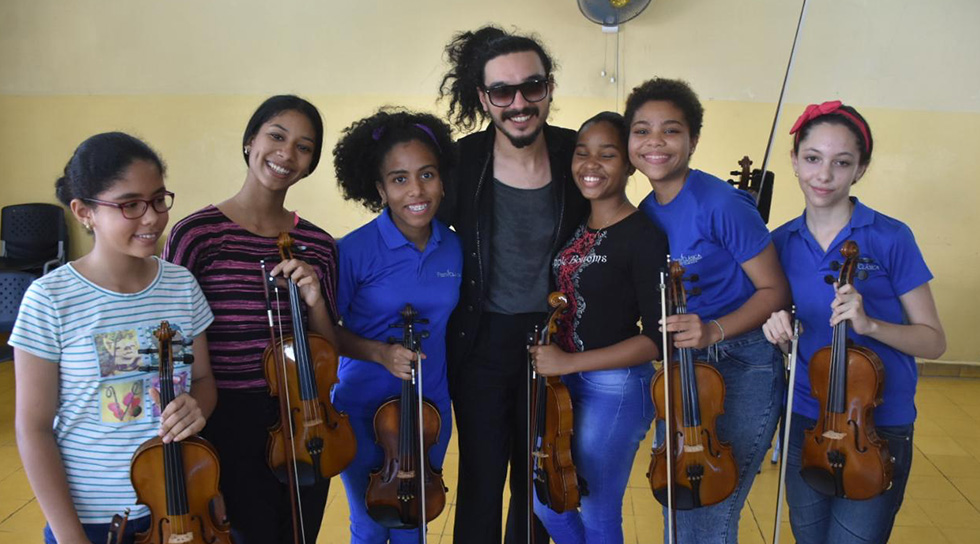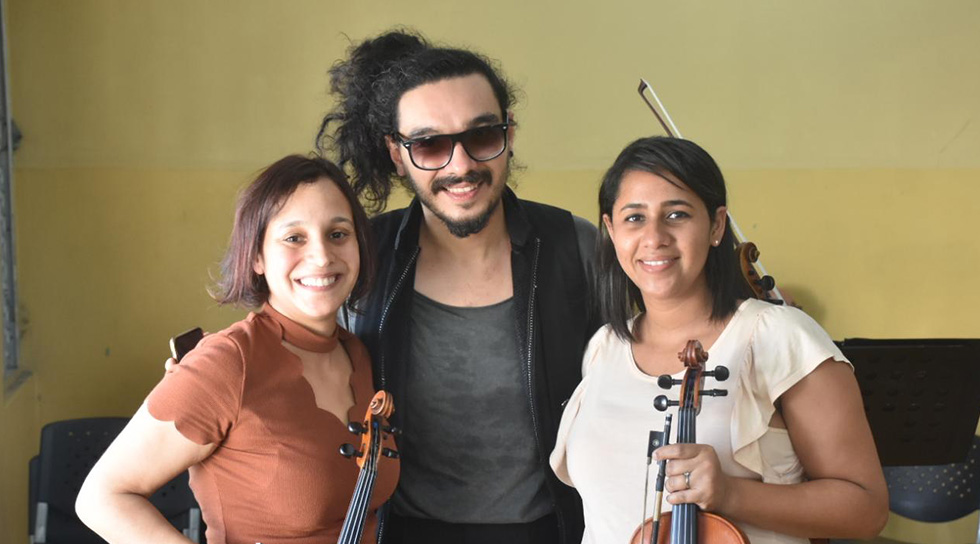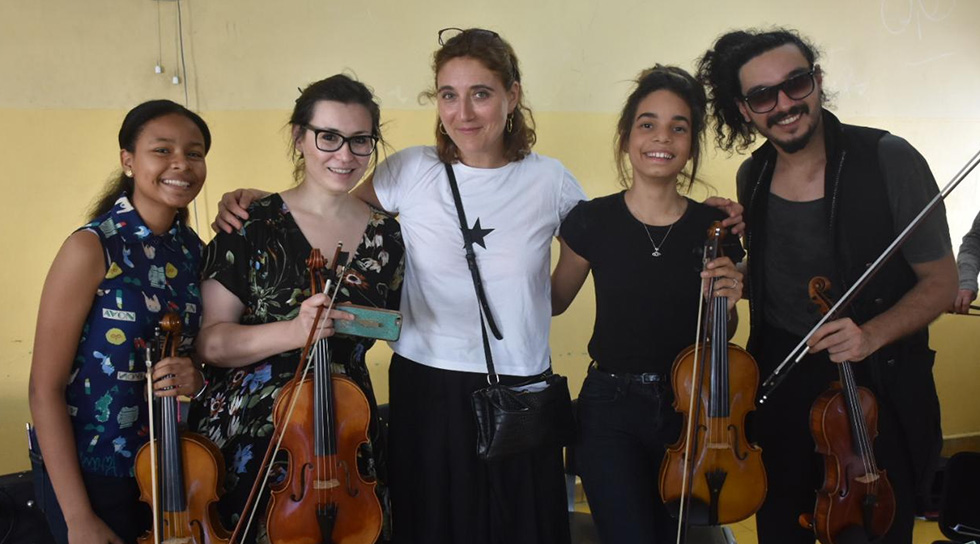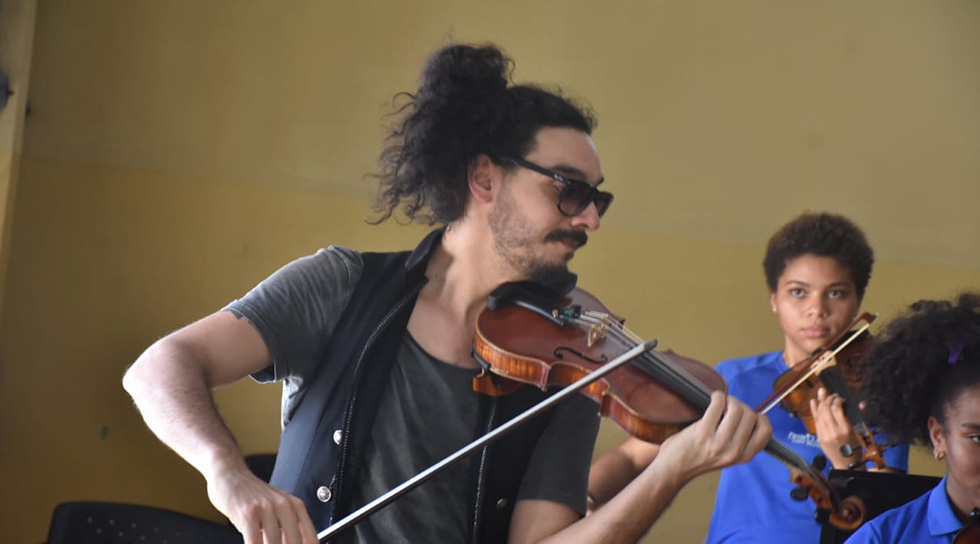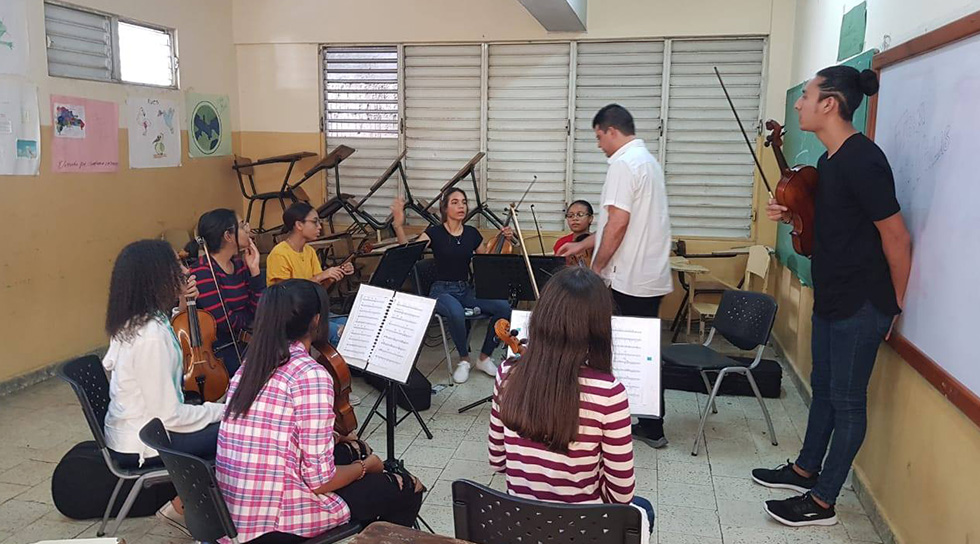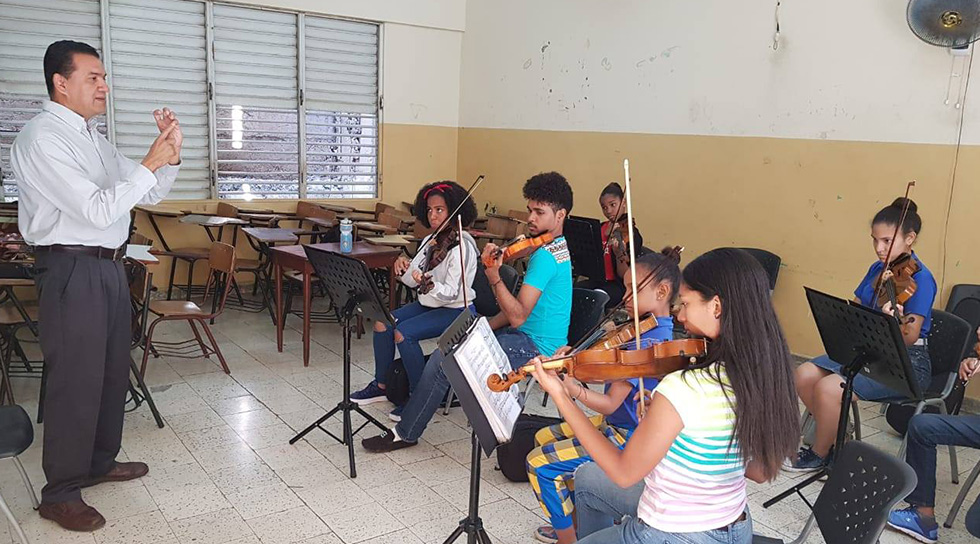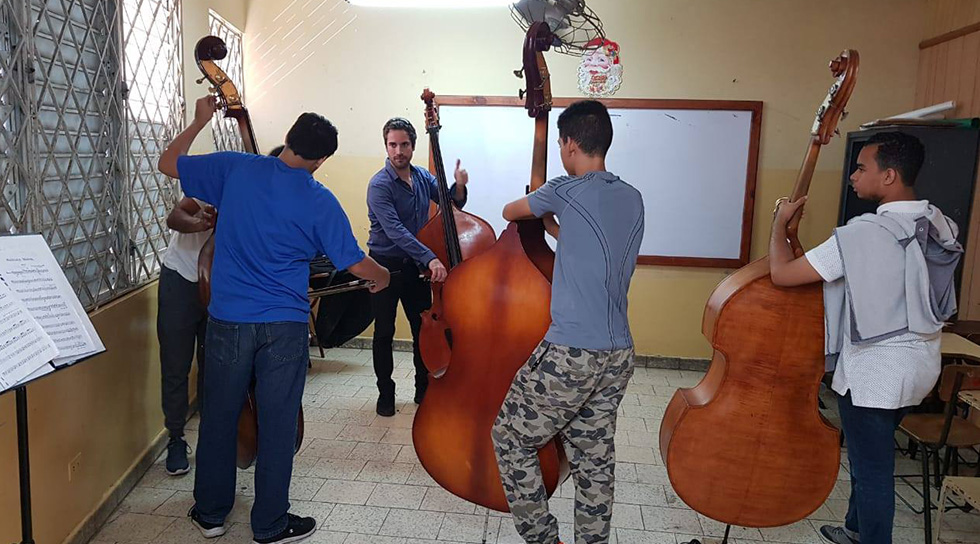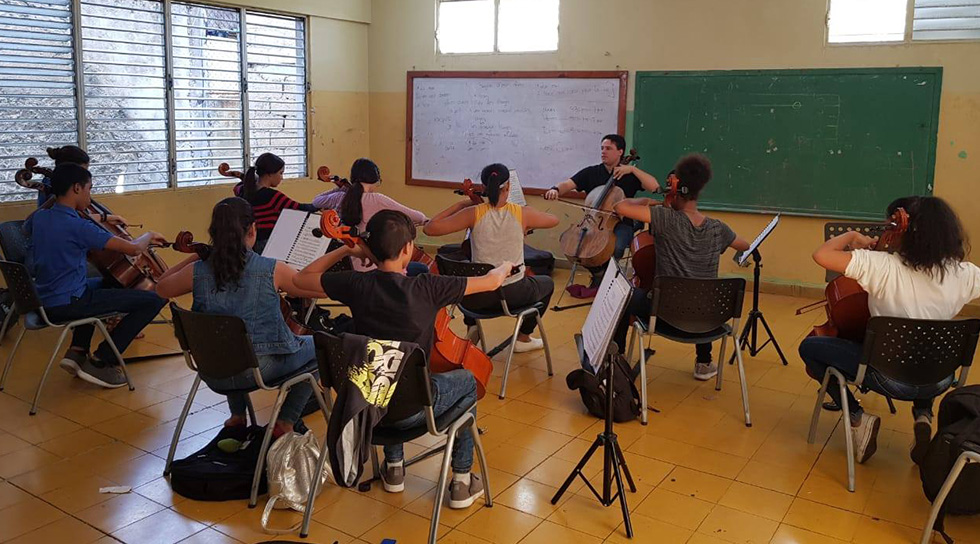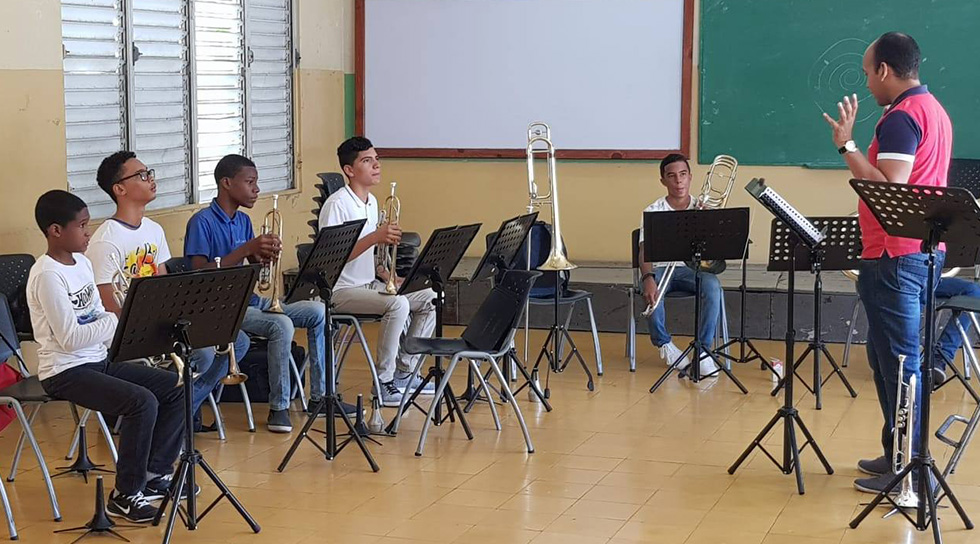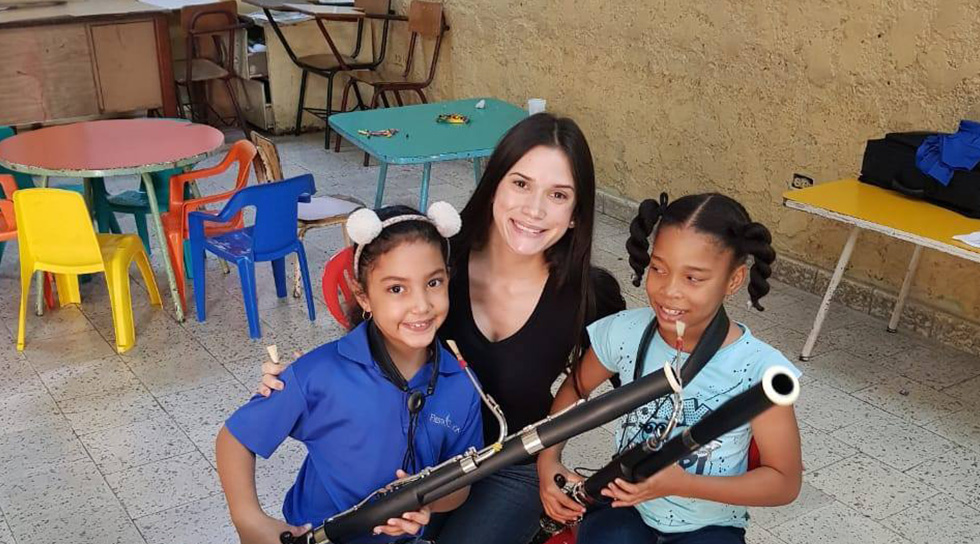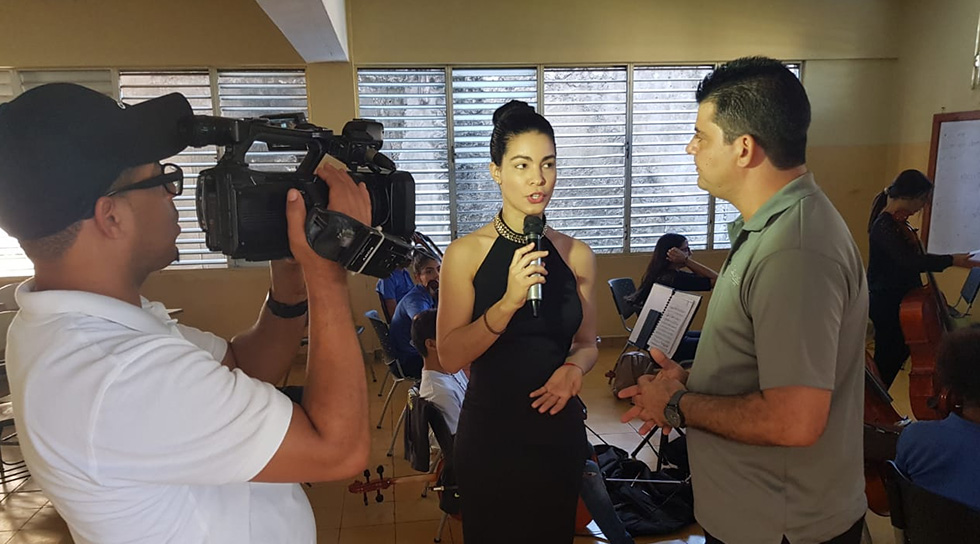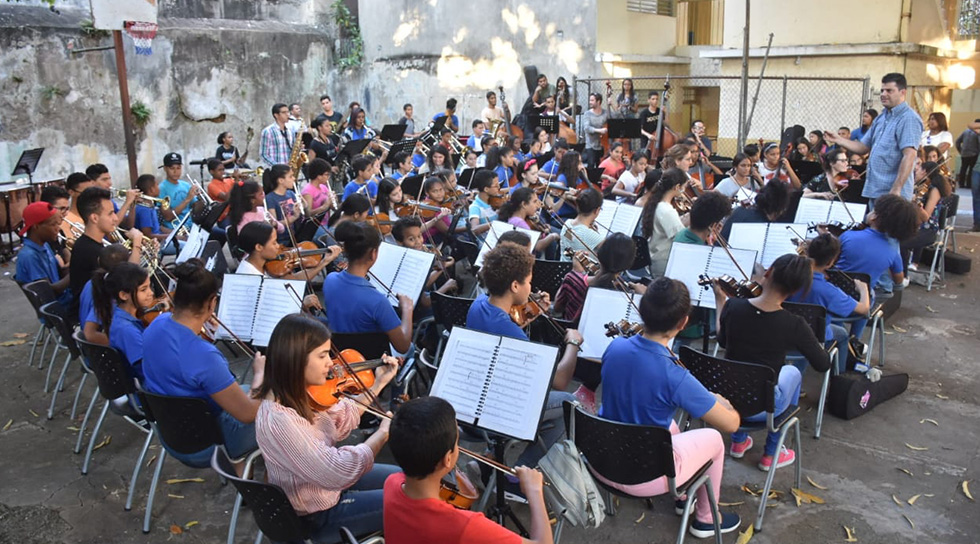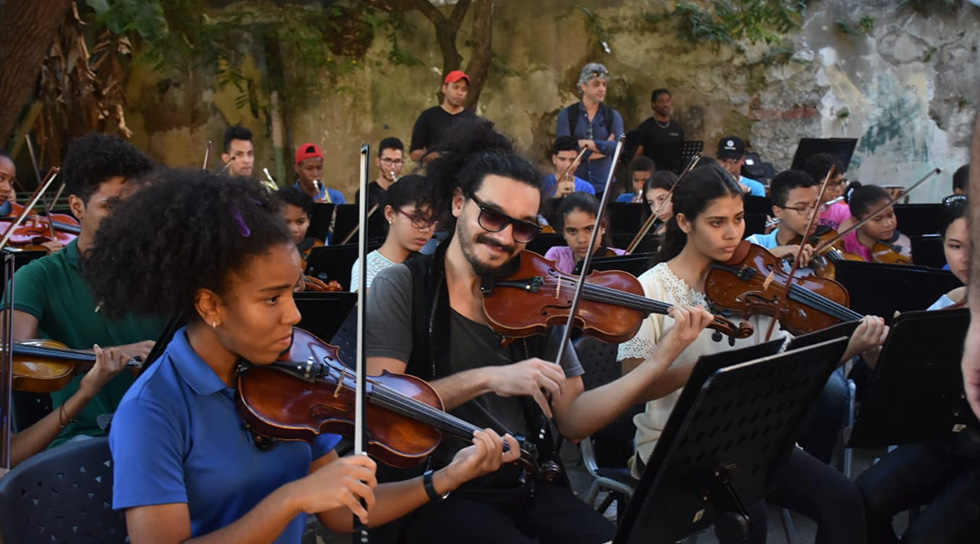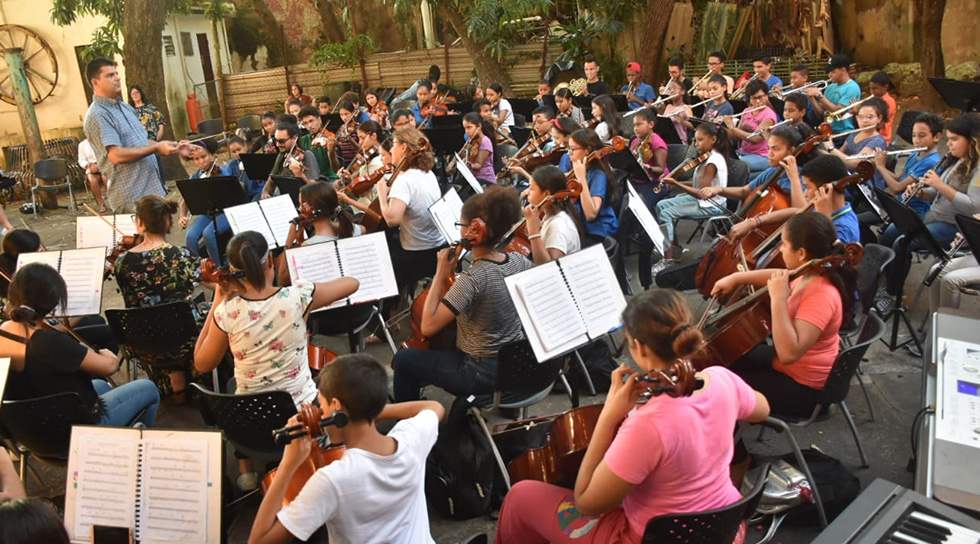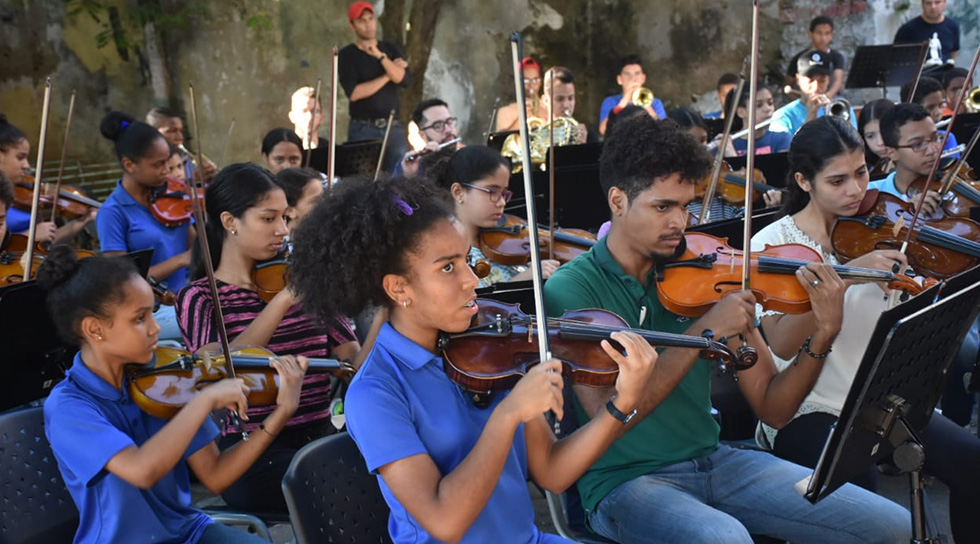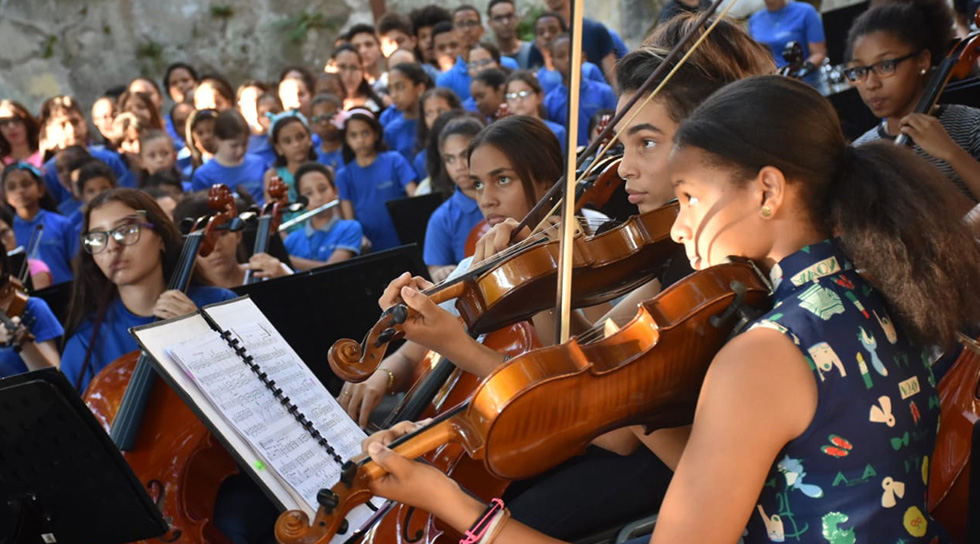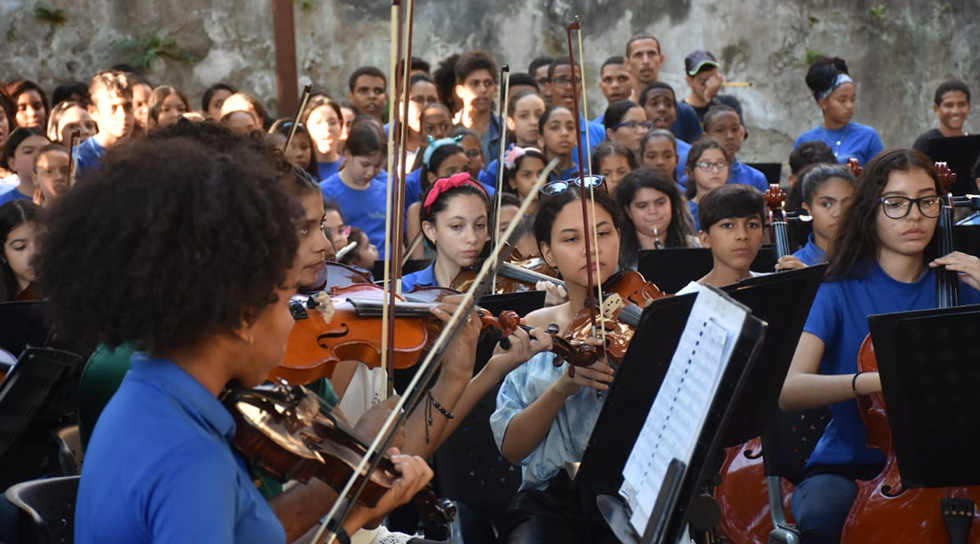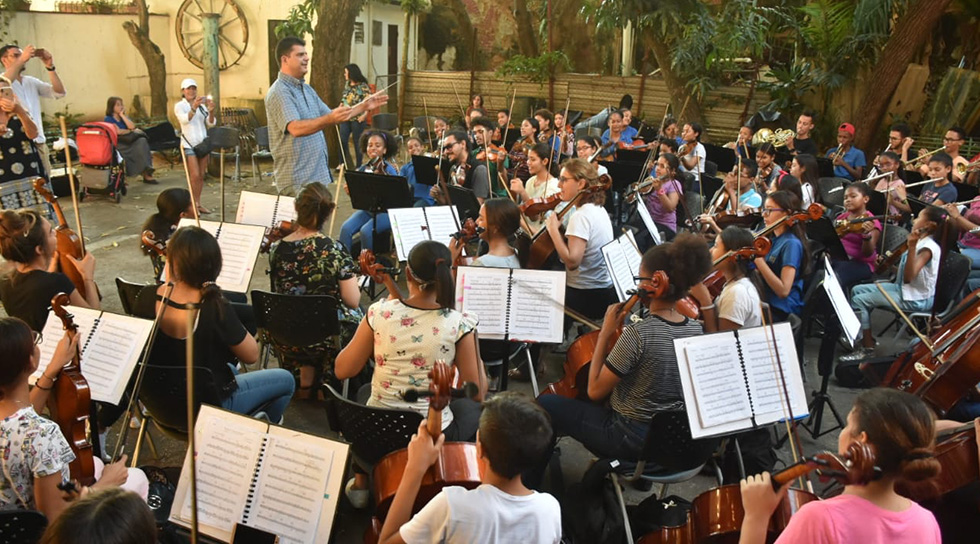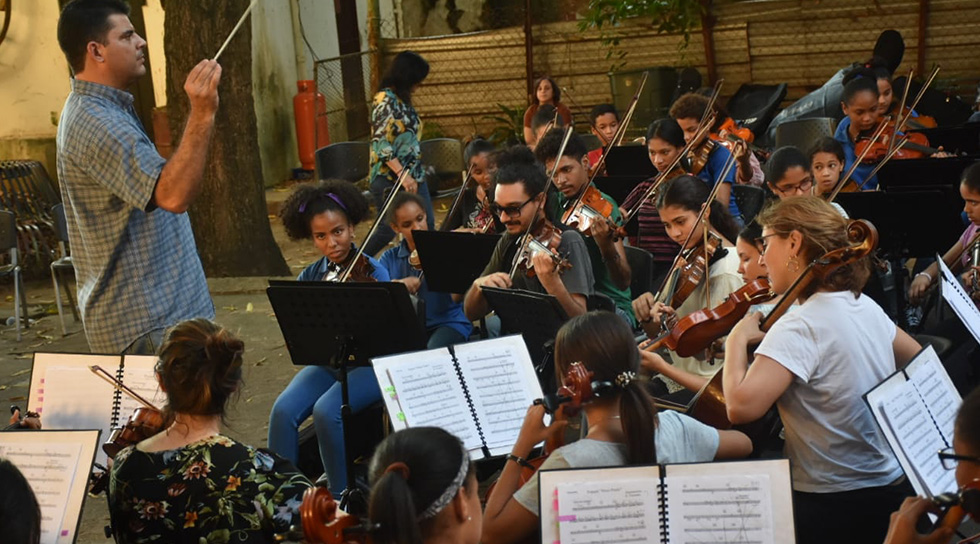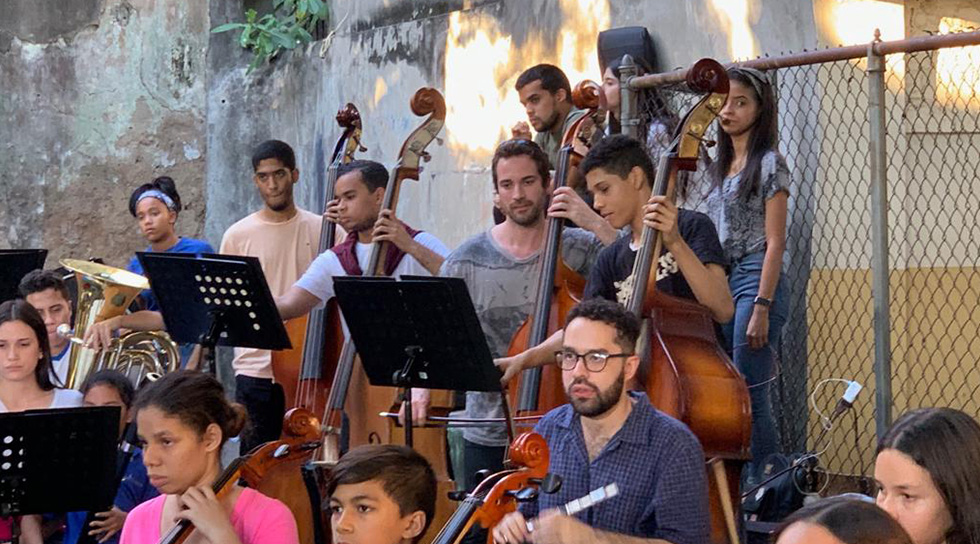OBJECTIVE: IMPROVMENT OF ORCHESTRAL AND CHORAL PRACTICE
IN CHARGE: MAESTRO EDUARDO ABI HARB
COST: $22,000 / AN
STARTING DATE: APRIL 2018
FINANCING 100% UNTILL 2020: FONDATION ENGIE
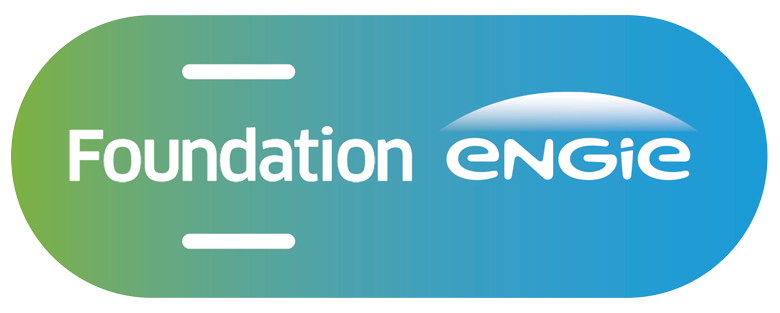
Planning
the second workshop planned for January 2019 took place from the 17 to the 22, with the objective to get ready for our Anniversary Concert of January 23rd. Classes were scheduled from 9:00 AM to 6:00 PM and spread throughout several rooms of our education center as well in the college located next door. The classes were split in groups based on the type of instrument played (woodwind, brass, string, percussion) and row (violins, violas, cello, trumpets, oboe, etc). Final rehearsals of the full orchestra ensemble happened the last two days. A total of 320 hours of classes in addition to more than 5 hours of rehearsals took place during this workshop.
A highlight was the friendly participation of violinist Nemanja Radulovic along with his string quintet “Les Trilles du Diable”. In town to perform at the concert, they hosted Master Classes from January 20 to 22 to the various string sections: violins, altos, cellos and basses. This input was extremely beneficial to the students who gained in self-confidence.
Program
This program reinforced the knowledge learned in 2018, with special classes and in small groups. The repertoire of the pieces the students have worked on since July has been widen, particularly in regards to the addition of traditional pieces: the Billirubina (Juan Luis Guerra), the Pot Pourri and the Mambo n’5 from Perez Prado.
In addition, the choir has continued working toward the concert of January 23rd, focusing on 2 main pieces: La Mer from Charles Trenet, song performed in French which adds in difficulty for the students, and El campo está florido, a traditional song from Columbia by Telésforo Jaime.
| WORKSHOP’ REPERTOIRE | LEVEL |
| Radetzky March (J. Strauss) | 3 |
| Danzón nº 2 (Arturo Marquez) | 3 |
| Pot Pourri (Perez Prado) | 3 |
| Mambo n’5 (Perez Prado) | 4 |
| Slavonic March (P. Tchaikovsky) | 4 |
| Carmina Burana n’ 5, 15, 23 et 24 (Karl Orff) | 4 |
| Concerto for 2 violins and bass continue RV522 (A.Vivaldi) | 4 |
| The Biquina (Trad. Mexicain) | 3 |
| The Billirubina (Juan Luis Guerra) | 3 |
Teaching staff
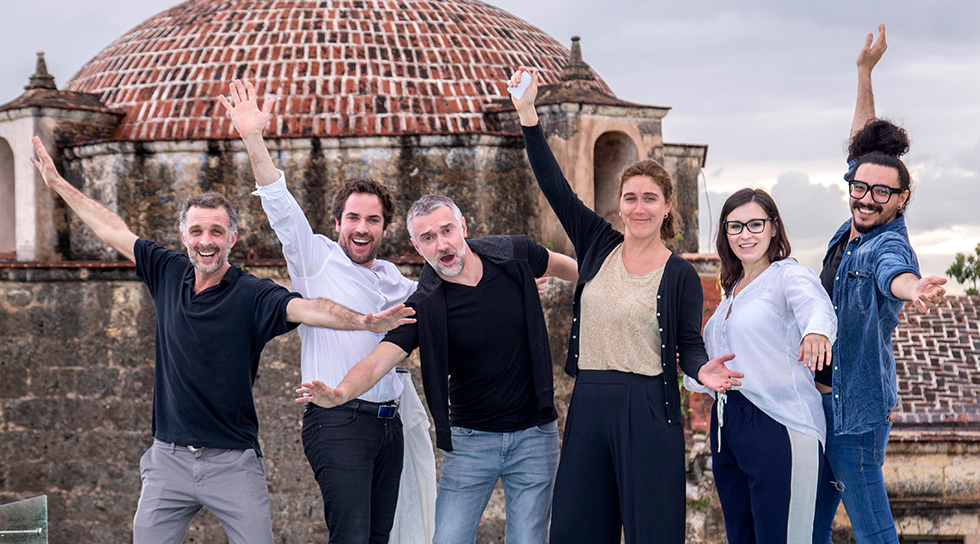
Our team of 12 teachers participated, including: 3 violin teachers, 1 cello, 1 bass, 1 clarinet, 1 oboe, 1 percussions, 1 trombone & tuba, 1 French horn, 1 trumpet, 1 flute.
For the occasion, additional staff joined the ones listed above, including the exceptional musicians from “Les Trilles du Diable” who hosted a few master classes, which were incredibly helpful to the students:
- Nemanja Radulovic, Violin
- Guillaume Fontanarosa, Violin
- Frédéric Dessus, Violin
- Kristina Atanasova, Alto
- Anne Biragnet, Cello
- Nathanaël Malnoury, Bass
Assistance
The entire orchestra participated in this workshop, with the number of students varying from 70 to 76 depending on their personal commitments (details in the appendix). The various breaks scheduled throughout the day allowed the students to better cope with the intense pace that was required. In addition, the teachers held sessions of discussion and exchange during the classes with their groups in order to allow participants to express themselves and gain confidence. Indeed, in this phase of development, the main objective of these workshops is to facilitate the genuine expression of the students and to allow them to gain confidence and to find a true motivation. Progress in the way they perform then comes more naturally. These processes were initiated according to the pedagogy developed by El Sistema of Venezuela.
In addition, we held an outdoor work session on January 21st with the orchestra and the choir, along with the teachers and guests artists, which allowed for the energy and motivation to spread out positively.
These intense encounters fit perfectly within our pedagogical approach because, in addition to learning music, they allow the students to express themselves and their personalities along with sharing a strong bond with professional musicians.
Project sponsored by Foundation Engie

